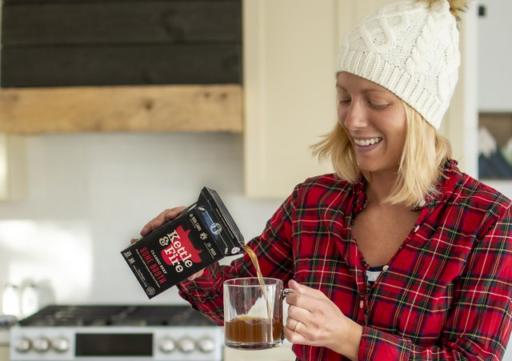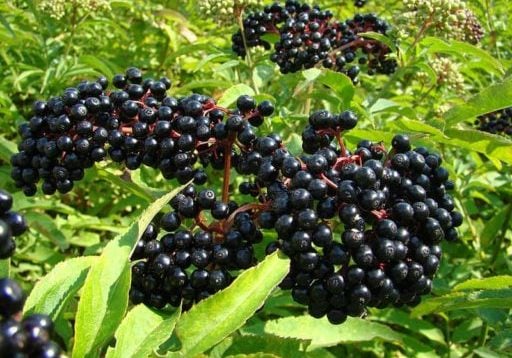Bone Broth Energy: Staying Active During Colder Months
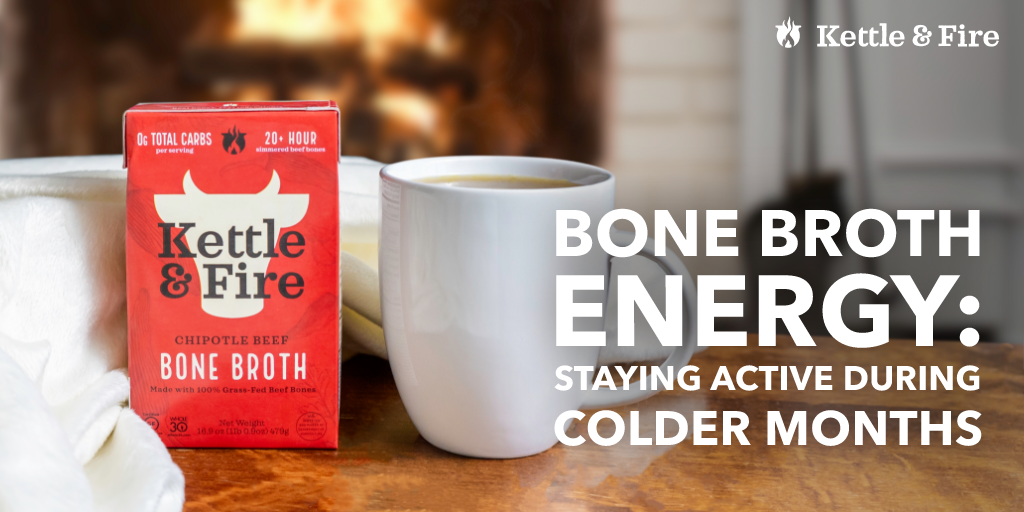
Over the course of time, animals have evolved to survive cold winter months in a variety of ways, when food shortages and natural weather patterns make life more difficult.
Birds flock south. Mammals of all sizes hoard food or grow thick coats of fur. Even reptiles and aquatic animals engage in processes to increase survival.
Many enter a hibernation-like state (to help lower body temperature, heart rate, and metabolic rate so the body expends less energy), brought on by shorter days, dropping temperatures, and increases in hormonal changes.
And although humans have equipped themselves in other ways to handle the changing seasons, our methods are not that different from the animals above.
Flocking south? Miami, we’re coming for you!
Hoarding food? Cold weather carb-loading is real.
Sporting thicker coats? We just bought more online. Cute boots, too
But as a species, we say we’ve perfected the art of winter weather survival unless we meet our changing physical and nutritional needs properly.
And we know exactly how to do that…
But First, What Happens to Us in Winter?

It’s easy to see why we’d want to cozy up on the couch for the next three months.
Humans are not exempt from the hibernation-inducing effects of colder temps and shorter days.
Just like other animals, we naturally want to stay sheltered-up, and most of us don’t have the benefits of a full body of fur to help keep us warm.
More time indoors means less time in daylight, and therefore our access to energy-boosting Vitamin D is limited.
This lack of sun exposure can lead to:
- Fatigue – meaning a reduction in sustainable energy for movement & exercise
- Seasonal Mood Disturbances – such as stress, depression, & other mental/behavioral effects
- Negative Physical Effects – like weight gain or even headache
Not only that, we also tend to experience an inherent desire to “stock up” our bodies with fuel for the winter, whether it comes in the form of unintentional cravings for carbs and sugar or even the tendency to overindulge during the holidays.
And while sneaking in refined carbs and sugar may seem like an acceptable practice over a short period of time (giving our bodies a quick burst of energy), the crash that occurs after the spike – not to mention all the other negative effects – aren’t worth the stray from healthy snacking.
Falling victim to any of the effects above can throw us into a nasty cycle of overeating, oversleeping, and not moving around enough to counter the negative results.
So, what can we do to prevent this from happening?
Better Ways to Survive & Thrive

The best strategy for navigating the changing seasons is to move somewhere that doesn’t have them.
Kidding, of course. (Though we’ve seriously considered it more than once.)
But in the event you’re willing to stick it out and weather the, uh, weather…here are some simple steps you can take to ensure a happier, healthier winter.
Flock to the Outdoors, Often
Even 20 minutes a day of (safe) sun exposure can lead to physical improvements & increased energy (with Vitamin D playing a supportive role). Daylight can also help lower stress (due to better-regulated melatonin), and can have positive effects on mood & brain health (it’s nature’s very own serotonin supplement!). So if smiling’s your thing, find some sun.
Hoard Healthy Foods
While it’s tempting to reach for the bad stuff when you’re bundled up, it’s much better to stock up on things our bodies really need – instead of the things we think we want (or, the things we reach for out of convenience or comfort). Whole foods – like high-quality bone broth, for example – can contribute to sustained energy (see next section) and are a smarter selection than carb-heavy meals or sugar-loaded snacks.
Sport Better Habits (along with your new coat)
While getting outside & eating better are definitely great starts to making this a better season for yourself, increasing movement is also extremely important. Exercising in cold weather means the heart doesn’t have to work as hard and, therefore, the body can use less energy… but don’t overdo it! Even light to moderate activities can result in incredible physical and mental benefits. (It also doesn’t hurt that you’ll stay warmer just by doing so.)
Key Nutrients That Contribute to Sustained Energy
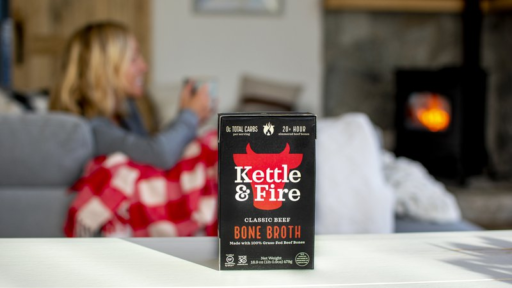
Bone broth is an essential winter staple for a number of reasons. (In fact, we don’t recommend letting the season start without it!)
The most commonly known benefit is that it naturally contains lots of protein, which is metabolized by the body and then used for various functions; one of those being energy production.
Unlike refined carbs – which are also converted into energy – protein doesn’t rely on quick bursts followed by soul-crushing crashes. Instead, giving your body a lasting supply of protein from bone broth can help you maintain energy levels throughout the day, the week, or even the months ahead.
Protein is also crucial for staying satiated (you know, so you don’t wither away to starvation under that big blanket), and can offset the body’s “need” to stay full during colder months.
Below are other specific nutrients found in Kettle & Fire bone broths that can help keep you active and energetic.
Vitamins & Minerals, like Phosphorus and Magnesium:
In addition to being loaded with calcium, potassium, and a host of other vital nutrients, bone broth is rich in two energy-fueling minerals.
Phosphorus is needed to create ATP (adenosine triphosphate, if you really want to impress your friends), which is a biological molecule that helps fuel bodily functions.
Magnesium typically then binds to an ATP molecule, making it operate as it is meant to do.
Amino Acids, like Glycine and Glutamine:
There are a number of these “building blocks” found in bone broth, all with names that remind us of a children’s song: proline, glycine, arginine, lysine, leucine, glutamine, and glutathione…to name a few.
Glycine converts the simple sugar known as glucose into an energy source.
Glutamine, on the other hand, is crucial for the regulation of energy metabolism.
Gut-Friendly Nutrients, like Collagen:
Intestinal microbes – and the gut microbiome in general – are important for energy regulation and metabolic processes. Maintaining a healthy gut has a long list of benefits (for the body, the brain, and even for beauty), but can also have notably significant effects on elevated energy levels.
Collagen can support gut health by helping to strengthen, rebuild, or repair the inner lining of the digestive tract.
The Solution is Pretty Simple
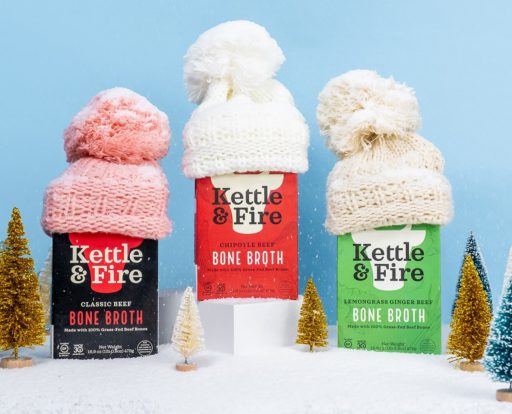
If your goal is to make it out of these colder months feeling refreshed, rejuvenated, recovered, and ready for the next year…
Stocking up your pantry (and your body) with delicious and nutritious bone broth from your friends at Kettle & Fire is the obvious way to make it happen.
So snuggle up in your favorite sweater and visit our store to load up on bone broth essentials – or bone broth soups for those winter nights when you just want a warm meal.
_______________________________________________________________
Consumer reviews, testimonials and opinions are based on the experiences of individual Kettle & Fire consumers. Kettle & Fire is not suggesting that any individual consumer’s experience with our products is representative of the experience of others. These testimonials are voluntarily provided and are not paid for or offered in exchange for free products..


